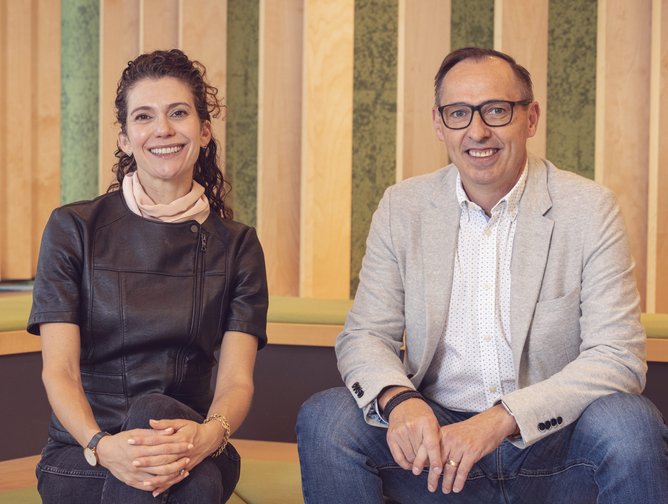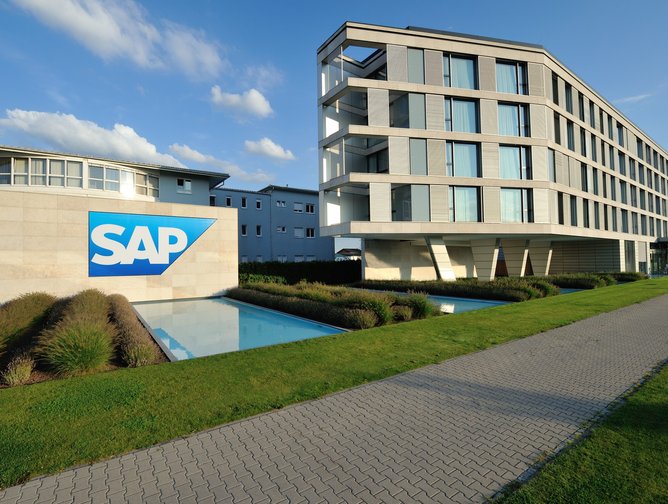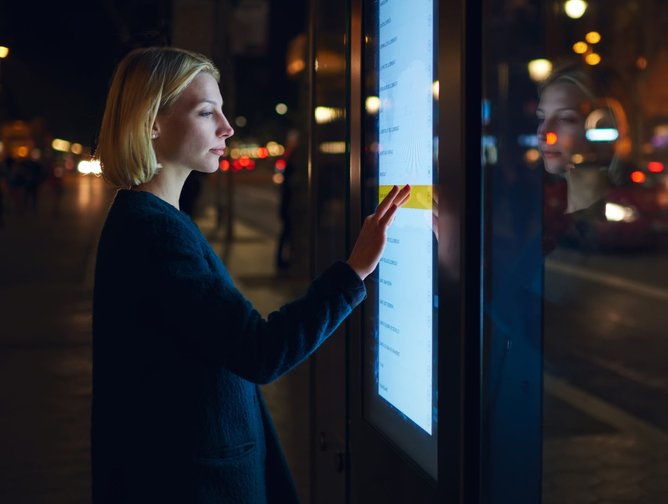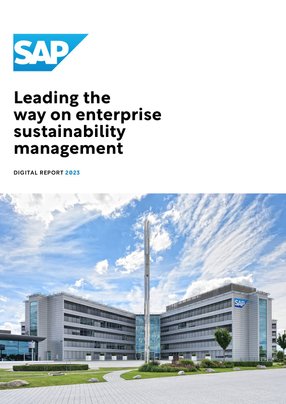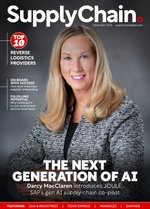SAP: leading the way on enterprise sustainability management
SAP was founded in 1972 when computers filled an entire room and were connected to monochrome CRT displays. This group of early technology pioneers went on to become the global leader in enterprise resource planning (ERP) software. SAP built and installed solutions that help run critical business functions from finance to supply chain to human resources. Ninety-nine of the 100 largest companies run SAP solutions, also 97 of the greenest companies. The company’s reach into global business is impressive – SAP customers account for US$46tn, or 87% of all global commerce.
SAP’s mission now is to embed sustainability into the core business of its customers. Using its formidable scale and reach, SAP connects sustainability data with other cloud-based corporate data so that companies have a more complete, accurate, and actionable understanding of their sustainability performance. By bringing sustainability into finance, procurement, and business networks, the aim is to make sustainable business the standard operating procedure.
While SAP has offered sustainability management solutions for many years, only a few years ago did it make the strategic move to develop a portfolio of specialised, cloud-based software solutions to help customers tackle difficult sustainability challenges at industrial scale. These solutions cover a number of areas, including climate action, circular economy, social sustainability, as well as holistic steering—the evaluation of corporate impacts on society and wider economy—and reporting. Under a co-general management structure, a team was formed within SAP to build and help customers adopt the new solutions.
- Gunther Rothermel is Chief Product Officer for SAP Sustainability. He’s been with the company for 25 years leading development teams.
- Sophia Mendelsohn is Chief Sustainability and Commercial Officer for SAP Sustainability and has focused on advancing sustainable business for 20 years.
- Together, Rothermel and Mendelsohn are Co-General Managers for Sustainability at SAP.
Rothermel spent most of his career in SAP. “I work more on the technology platform side of the house,” he says. Alongside his personal interest in the topic, Rothermel realised that there was a massive data challenge in corporate sustainability and this is why he began solving problems in this area.
Meanwhile, Mendelsohn cut her sustainability teeth in China. “That's where I really became committed to the idea of marrying up free-market solutions with sustainable outcomes,” she says. “I’m often called an OG in corporate sustainability. Before, we called it EHS and then CSR, then sustainability and then ESG. Now, we are moving towards business integration.”
A co-general manager structure makes sense for SAP and sustainability solutions, Mendelsohn adds, “I think what Gunther and I combine very well at SAP is my understanding of the market need with his understanding of sustainability data and integrating it with other corporate data.”
This is exactly where SAP combines ambition with reality.
ESG data management foundation
“We cover a broad range of sustainability challenges for our customers,” he says. “A lot of things are coming fast. It’s an exciting time because there’s a lot of new ways we are applying advanced technology to sustainability management while at the same time there’s a lot of regulatory changes happening.”
One major challenge, however, is to find solutions for the problems at hand, while some of the standards and industry regulations are not there yet, he said.
For Mendelsohn, SAP's ESG data management strategy and solutions, like the SAP Sustainability Control Tower, is about creating the best data foundation so companies can level up to holistic, enterprise-wide sustainability management.
“One thing Gunther has taught me at SAP is that there is still a huge amount of uncertainty with sustainability data,” says Mendelsohn. “With so much of the regulation and ambition oriented around reporting and transparency, our challenge is to make reporting easier so they can focus on transitioning their business activities to be more sustainable.”
Data is core to the overall ESG foundation, she adds. The data has to be accessible, accurate, and stable in order to be effectively integrated with other corporate data and used for strategic planning or in-the-moment operational decisions.
“What the sustainability stack at SAP does is go from data aggregation to data analytics,” she says. “The ability to connect the data, see it and use it, from the boardroom to the shop floor, is what can help people make more informed, more sustainable business decisions.”
Tackling Scope 3 emissions across supply chains
When it comes to climate action and accounting for carbon emissions, SAP wants to help companies move past estimates and error-prone spreadsheets to effectively calculate overall corporate carbon footprints, and then move to calculating footprints at the individual product level.
Because SAP helps companies run their global supply chains, SAP is ready to get down to the data details when it comes to Scope 3 accounting. Upstream and downstream carbon emissions transparency, however, remains a challenge for companies across industries. One of SAP’s key approaches is to enable companies to share accurate emissions data along the supply chain, instead of everyone making often-incorrect assumptions and calculations.
Enterprises need an accounting system for their emissions data that is as auditable, transparent, and reliable as their financial data. The current accounting system for supply chain emissions is severely flawed as it relies on data that often lacks access, accuracy, granularity, and comparability, Rothermel added. SAP’s transactional carbon accounting capabilities focus on recording, reporting and acting on carbon emission data and ultimately syncing the emissions data with financial data leading to a “green ledger”.
“We envision carbon to be accounted for in a green ledger, just like your financials are maintained in a financial ledger,” he says. “But companies still have a big challenge to deliver data of a quality worthy of a green ledger.”
“There are two key parts to SAP’s greenhouse gas protocol coverage across all scopes,” he says. The first is SAP Sustainability Footprint Management which is a solution that increases accessibility by pulling data from many sources, and then uses the data as a basis for footprint calculations.
“Because more than 80% of carbon emissions are Scope 3 emissions locked away in your supply chain, you fundamentally need to get access and aggregate this data,” he adds. “If we don’t, we will continue to work with averages instead of actuals.”
Gathering and calculating emissions data more accurately is one thing, but companies need to move the data from one supplier to another.
“We want to rely on real data that customers can share,” says Rothermel. “This is why we cover carbon sharing capabilities in our SAP Sustainability Data Exchange solution, for example, that uses standards and protocols established by the World Business Council for Sustainable Development’s PACT program, the Pathfinder framework, and other standards over time.”
Mendelsohn sees the need for companies to move to the cloud to accelerate how they can take advantage of next-generation carbon accounting.
“The reality is that the energy transition and the materials transition are going to happen in the cloud,” she says. “It's going to happen with AI with the amount of data we’ll have to synthesise. We're talking about envisioning a supply chain that shares sustainability related information more openly and fluidly than they share financial information.”
“There's a gap between where the regulations are envisioning what's possible and where we see technology delivering,” she says.
Moving to a circular economy
The co-GMs both made the point that we can only deal with about half of global emissions by moving to renewable energy. We have to tackle the other half by designing out waste, keeping materials in use longer, and adopting regenerative practices across all areas of production.
One hundred billion tonnes of materials are used each year in our current “linear” economy. Just 7.2% is reused or recycled. The SAP team wants to change this and aims to help companies build a more circular economy using the SAP Responsible Design and Production software.
Rothermel built this cloud-based solution based on SAP's Business Technology Platform, their flexible development and customisation platform. The solution helps companies react to quickly changing plastics taxes, for example, and adapt product packaging specifications to respond to new Extended Producer Responsibility policies.
Ensuring social sustainability
SAP’s social sustainability software and ESG packages are an important part of its offering, which SAP has been investing into for years and covers more operational aspects of sustainability.
“Customers use this for the operational compliance on a plant level for emissions management and waste management related topics, but it also has a strong health and safety component,” explains Rothermel. “It covers incident management, because SAP operates in many industries that are also very regulated.”
Mendelsohn emphasises that sustainability can't all be about carbon emissions.
“Fundamentally, we still talk too much about carbon and climate as an environmental problem, as if this is something separate than social. At SAP, we have the ability to measure the social elements. What I want to emphasise is that when we talk about treating carbon like money or the importance of accurate carbon data, we see it as a social issue for communities, for our customers and for our own employees.”
“We support other important metrics, such as women in management positions, D&I related components, and human rights,” adds Rothermel.
Collaborating for Impact
SAP is also supported by a global network of partner companies helping to customise and install SAP solutions. It's a big ecosystem. Partners are an intrinsic part of SAPs strategy and how they go to market and build solutions.
“Our partners play several important roles,” says Rothermel. “They help us to bring the software to our clients. They help us implement the software and of course they also advise our customers on their strategic transformation journey.”
“We are not only using the strong capabilities that we have in-house in SAP, but we are also incorporating and using the very specialised capabilities from different partners. They co-innovate with us because we believe nobody can solve these tough issues of sustainability alone.”
SAP will continue on its mission to embed sustainability across the businesses it works with and Rothermel and Mendelsohn will lead the sustainability team together. Over the next year, there’s a lot in store for the company.
“Big sustainability transformations are really just beginning. It’s what I am here for and why I get up in the morning,” Rothermel added. “I want to help customers to solve problems with the help of good software in the sustainability space.”
“It’s a very important year for us at SAP, but also for the whole industry and for sustainability,” said Mendelsohn. “I'm looking forward to 2024 when we deliver new capabilities and help customers really take advantage of technology and data and speed up their transitions. It's going to be a year of new proof points and ultimately positive impact. That’s what I am looking forward to.”
